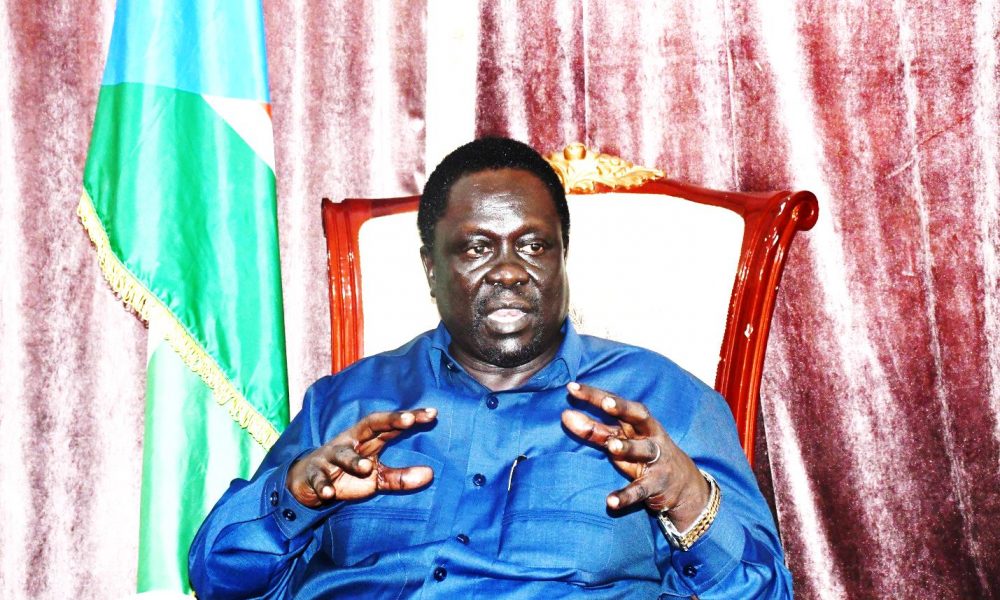By William Madouk
Government plans to incorporate civic education into primary and secondary school curricula to shape children into good citizens.
Vice President for service cluster, Hussein Abdelbagi Akol revealed this during “Girls Take over Offices” mentorship programme.
He said that the fear of the unknown and wrong perceptions of going astray prevents parents from allowing their children to pursue education far away, especially in urban areas.
“If the parents are not in Juba, they will not encourage girl to come to Juba to have an education because they assume that most of the girls are weak. They are not like boys,” he said.
“So, parents will make sure that if they are not part of the city where the girl is going to be in university and no close relative will take care of her, they opt to keep her at home,” Abdelbagi exclaimed.
However, he said this can change if nationwide awareness is raised for parents to understand gender equity and that, through proper mentorship, they will succeed in their journey.
“We want to tell parents that the girls are like boys. If you orient them very well and give them the opportunity of education, even if she is very far away from you, she can also perform as a man,” Abdelbagi advised.
According to him, there is a need for civic education in schools to educate young people of the dangers that lie ahead as they grow.
“This also needs the education institution to make sure that they have a civic education in the institution so that they can encourage the young girls,” he added. “This is one of the problems facing our community, and now we have to raise awareness.”
“So this important thing should be done, and this awareness is important. And we have to make sure also in the schools that we have a civic education for the girls so that they can show and be shown the dangers of life.”
The VP for Service Cluster noted that the two levels of education—primary and secondary—are now free and compulsory; as such, every child must be in the class.
“Giving them a civic education and showing them the dangers of the age that they are in will guide them, and they will know how dangerous things are, and they will avoid everything,” he emphasized.
“When they [kids] come back also, as a family, you have to take over from that to have that role. And this will also minimize the problem and the incidents that are happening now,” he said.
Abdelbagi appealed to the parents to have confidence in the education institutions across the country.
He further decried the majority of youth who embroiled themselves in cattle raiding, looting, and killing, among others.
Civic education provides a vehicle for citizens to become enlightened about their rights and responsibilities and to also acquire the knowledge and skills necessary for justice and democracy.
It also, teaches citizens how to deliberate, even when they have political differences. It can enable citizens to find solutions to many problems, such as school attendance, economic development, or community safety.
Now more than ever, it is essential that education departments prioritize multidisciplinary approaches to teaching civic education and engagement. Schools can best prepare students to engage with civic information by educating them.
This must go beyond investment in civic education programmes and classes (although that would, undoubtedly, be helpful); instead, it requires curriculums that proactively address how civic education and policy affect society.




